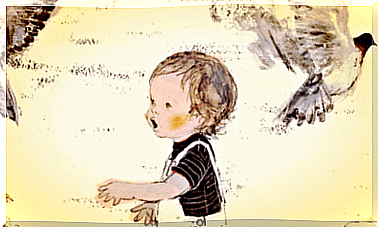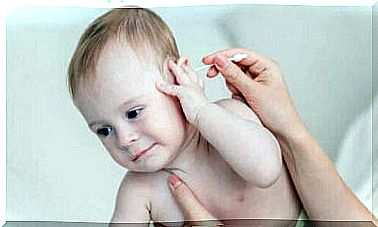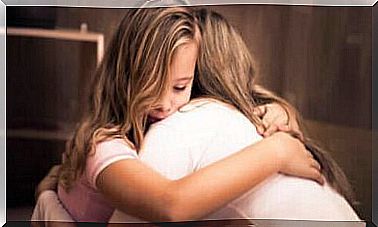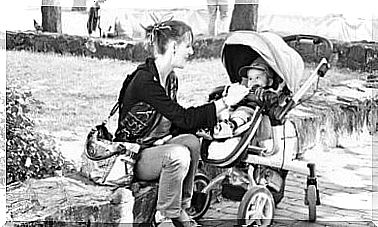Toxic Shame In Children: How Do They Develop It? – Being Parents
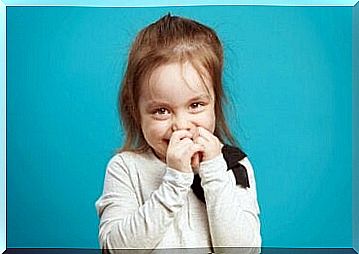
You have certainly felt shame on many occasions. It’s something normal that makes us feel a certain sadness when our failures are exposed, like public speaking and making mistakes, tripping and falling, etc. But it can become a toxic shame in children if they associate it with fear from an early age.
Shame in itself is not bad; it is even good for children to feel it so that they convert their inappropriate behavior into acceptable behavior.
But what if we punish children right after a situation where they feel ashamed? How do children develop toxic shame? We will now answer these questions.
Shame, a tool for children’s learning
Shame is a feeling that helps us improve those inappropriate behaviors or aspects that we have for better. It is an acquired cultural behavior that allows many young people to build relationships in their community.
Different cultures lead us to behave differently, because what may be seen well in one culture may not be seen in another. It is therefore the behaviors that activate shame, which change from one place to another, but not the feeling, because it is universal.

It is quite normal for children to feel shame sometimes, as this is what will help them live with other people and reinforce it, in a negative way, when a social norm is broken.
What if we, the parents, punish the child after a situation where he has been embarrassed?
In these cases, the child may associate this feeling of shame with fear and make it difficult for him to learn, and feel imperfect and alone. The combination of these two emotions will make the child feel like he is being misunderstood and not being good enough.
So it is important that we always try to correct with kindness and tenderness, so that he acquires the teaching and does not associate it with anything bad. In this way, he will continue to feel that he is good and that mistakes can be corrected, without being, for this reason, less valid than anyone else.
Why do children develop toxic shame?
If a child is punished for every mistake or inappropriate behavior, he can end up developing toxic shame. Shame can then affect his self-esteem and self-confidence, and his life will be affected as well.
How can we transmit toxic shame to our children? There is no one way, that is, it can be transmitted in different ways.
The most common is when we are in a public place and our child has a tantrum that embarrasses us and, at that time, we scold him. The reason for the tantrum is no longer important and the child will only be ashamed.
If this happens, the best thing to do is talk to her and explain the reason for the situation, which shouldn’t have any negative consequences. We all learn from mistakes and mistakes, and so do children.
How to avoid toxic shame in children?
It is important here that parents work on their feelings and emotions. We need to be aware of what is causing us shame so that we can try to fix it. As we know, children imitate the behavior of their parents. So, to try to prevent toxic shame from being passed on to your children, we need to keep these tips in mind:

Avoid punishments and reprimands
If we want a child to change their behavior, we need to channel that impulse and show empathy. In this way, the child will be able to differentiate what is good from what is bad, without resorting to punishment.
Always educate with positive boundaries
If we set positive limits, the child’s brain tends to control its impulses and develop the connections that it needs to master. The more understanding we show, the better the child will accept the limit to channel these impulses. Conversely, if he receives criticism, he will resist the temptation to control himself.
Be an example of the behavior you want to instill in your children
We all know that parents are the primary role models for children. They naturally accept that everything we do as parents is right. But, if they want to do something that is not done at home, they will resist the urge to do it. So keep in mind that if we scream, they will too.
Speak naturally on any subject and always avoid taboos
If we do not speak naturally at home and the children have secrets with us, they will be embarrassed. We tend to hide things that aren’t verbalized or that we think aren’t right, and that does more damage. This is why we must not avoid talking about anything naturally so that it does not become a taboo.
Avoiding toxic shame in children
As you have seen, toxic shame in children can lead to insecurities, low self-esteem, low self-confidence, and more.
Now that you know what it is and how we can prevent children from developing it, you can put into practice some of the tips we’ve seen here to prevent it from being passed down from generation to generation.


